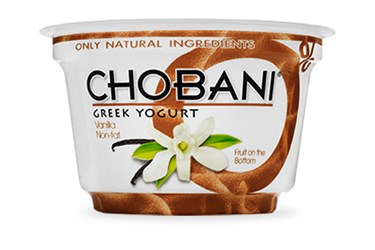FDA Gives Chobani The OK After Inspection

By Sam Lewis

Following 409 complaints of a fungal contaminant in the yogurt maker’s product, federal agents inspected the company’s Idaho plant. Small flaws were found in GMPs, however, none necessitated a warning letter
After the publication of a controversial article from mBio regarding a fungal pathogen in Chobani’s yogurt production facility in Twin Falls, ID, FDA inspectors inspected the plant finding “minor deficiencies” in good manufacturing practices (GMP). However, the agency states despite the flaws, none of them were severe enough to justify a 483 warning letter. This form is issued for suspected violations of the Food Drug and Cosmetic (FD&C) Act and inspectors believe a company’s products are being made in conditions that may present health problems to consumers.
Ensuring Food Safety And Compliance With A Quality Management System
In the Establishment Inspection Report, the FDA states problems were first found at the plant in July of last year. Routing samples from the Idaho Department of Agriculture yielded a “yeast-like growth developing in yogurt samples.” Soon after, the report reads Chobani “began an equipment cleaning regimentation but found the problem was being reduced but not stopped.” Samples were sent to an anonymous lab where the growth of Mucor circinelloides was found.
Chobani cleaned the entire facility and revised both its testing and sampling procedures, says the report. Records of the cleanings were “carefully analyzed for any deviations from the protocol and all the records were found satisfactory.” According to the report, environmental sampling and swabbing protocols were “precise and regimented.”
Hygienic Automation Technology = Food Safety
The results make it difficult for the FDA to determine if the product itself caused the unpleasant happening or if it simply was a coincidence. Due to this, the FDA was not able to issue a warning letter from the event. Many factors must also be considered, but are often left out, when creating these reports.
Chobani’s statement regarding the event agrees with the FDA’s findings. “Chobani conducted an aggressive, statistically significant series of tests of the products voluntarily recalled in September 2013 with third-party experts confirming the absence of foodborne pathogens. Chobani stands by these findings, which are consistent with regulatory agency findings and the FDA’s Class II classification of the recall on Oct 30, 2013. To our knowledge, there is no evidence, including the assertions presented in this publication, that the strain in the recalled products causes illness in consumers when ingested.”
